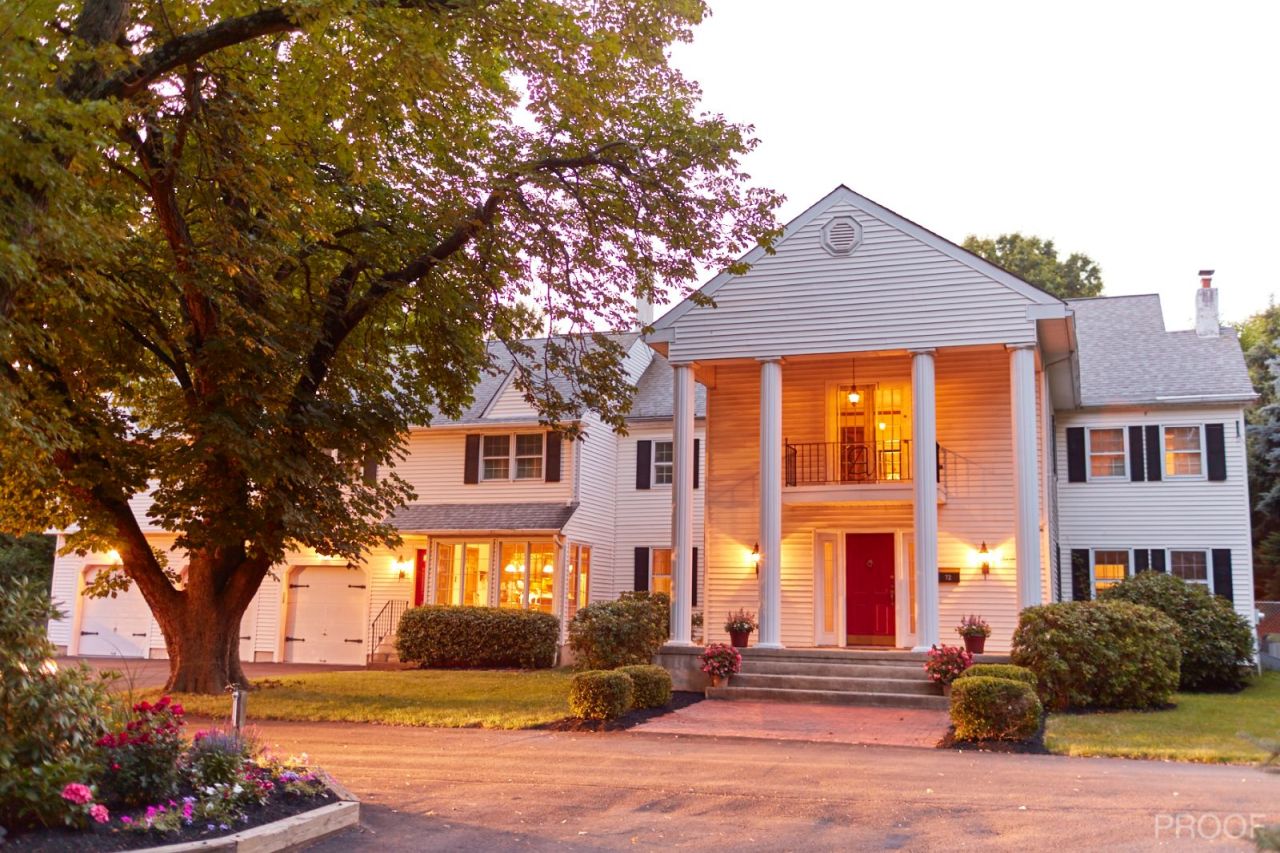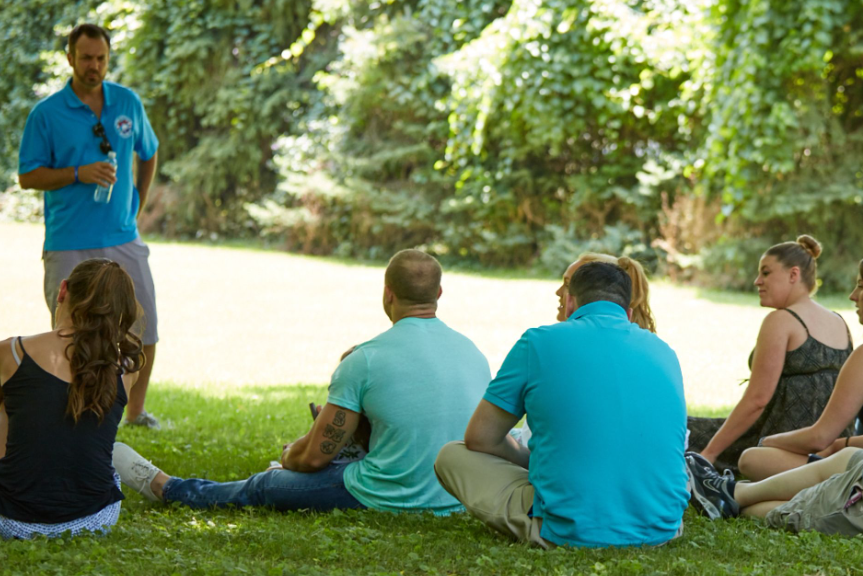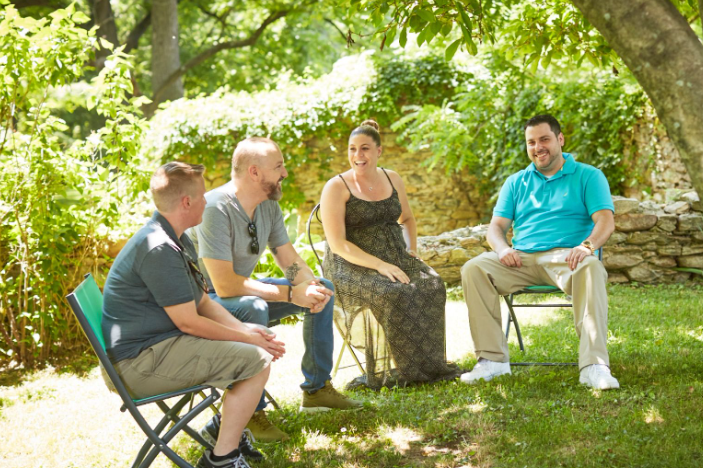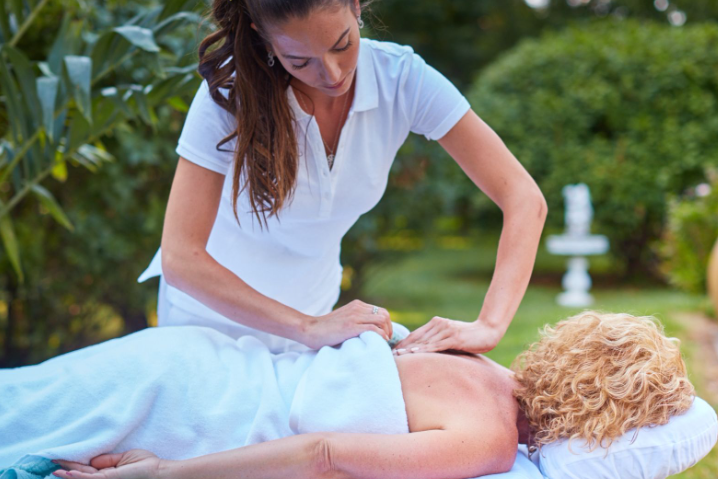Take A Tour
Alumni Testimonials
LOOKING FOR HELP
FOR YOURSELF OR A LOVED ONE?
Call us today and one of our counselors can help you or someone you love get into treatment today!
Call Now (844) 695-0083- Why Choose DayBreak
- Highest Rated Alcohol Detox Program
- Drug Detox Program
- Top Alcohol Rehab in Trenton (What Is It and What Is It Like)
- Drug Rehab in Trenton (How Does It Work and What Is it Like)
- How Much Does Rehab Cost in Trenton New Jersey
- How Long Is Detox?
- How Long Is Rehab?
- 30 Day (short term rehab)
- Long Term Rehab (60-90 Days)
- Additional Therapies u0026 Addiction Treatments Available
- Does My Insurance Have Coverage For Rehab?
- MAT
- Cognitive Behavioral Therapy
- Dialectical Behavioral Therapy (DBT)
- Rational Emotive Behavioral Therapy (REBT)
- Dual Diagnosis Treatment
- EMDR
- Relapse Prevention
- Life Skills Training
- Vocational Training
- Group Therapy
- Experiential Therapy
- One on One Therapy
- Family Therapy
- Trauma Informed Therapy (After PTSD)
- Physical Fitness
- Off Site Activities
- Why Choose DayBreak Trenton NJ?
- Recovery Friendly Attractions near Trenton
Why Choose DayBreak
When you choose to detox and rehabilitate from drugs and alcohol at DayBreak addiction center, you are choosing a facility that offers the full continuum of care, with levels of care leading you through a safe and effective medical detox into the inpatient or outpatient rehab program of your choice. Our Trenton drug rehab team will get to know you during your intake and then make recommendations to you about which treatments will work best for your unique health, mental wellness, and addiction needs.
Highest Rated Alcohol Detox Program
Alcohol detox is not something to be taken lightly. Although alcohol is a legal substance that is easily purchased and is found in nearly every town and city in America, alcohol addiction is a serious disease, causing major health complications and life-long issues. Alcohol also makes changes to the brain that, when you stop drinking, can lead to serious withdrawal symptoms that, if untreated by medical professionals, can become dangerous or even deadly.
A medical detox program for alcohol use disorder (AUD) is the safest and most effective way to quit drinking for good. Not only does quitting inside a full-time detox center keep you away from the temptation to drink as you go through withdrawal, but you will also have 24-hour supervision by doctors, nurses, and psychiatric doctors to ensure that you are safe and comfortable.
Withdrawal from alcohol may produce side effects like anxiety, restlessness, stomach issues, pain, and strong alcohol cravings, and can lead to more serious issues like hallucinations, high fever, seizures and delirium tremens. A medical detox will give you the option of taking FDA-approved prescription doses of medications to stop cravings, prevent seizures, and help you deal with other discomfort so you can rest and get well quicker.
We also provide comprehensive psychological care, as there are emotional issues, trauma, and mental illnesses that co-occur alongside addiction. Treating these together at the same time in a dual diagnosis program will allow you to heal your mind, body, and spirit all at once, so you will be in a better place to grow, learn, and become a new and sober version of yourself.
Drug Detox Program
Our drug detox programs at DayBreak all take place inside our luxury facility, with the goal of keeping you as comfortable as possible as your body removes the toxins from your system.
Detox programs are customized to suit your unique addiction needs, as every person is different and every drug creates different withdrawal symptoms. There are nurses and nurse practitioners on duty 24 hours a day, overseen by a physician, so you will never be alone, and somebody will always be there to monitor your health, your comfort level, and your progress through detox. Because withdrawal can be painful, scary, and distressing on many levels, we aim to do all we can through medication administration, trauma-informed care, therapy and counseling, and luxury accommodations so you feel as safe and as comfortable as possible.
The rooms in our detox centers are semi-private with a maximum of two occupants at a time. Each person has their own TV, and there are plenty of comfort amenities available including:
- A holistic spa
- Massage services
- Salon services
- Movie theater access
There are two levels of detox:
- Acute detox – people who have severe addictions, co-occurring mental illnesses, or life-threatening conditions due to intense withdrawal symptoms will be placed in acute detox. You will have 24-hour inpatient medical care to ensure you do not suffer from seizures, high blood pressure, respiratory issues, etc. during detox
- Sub-Acute detox – those who have a mild addiction or less-severe withdrawal symptoms will be placed in a flexible sub-acute detox program. Sub-acute detox usually takes place in inpatient care but may be outpatient in certain circumstances. It may take days or weeks for detox to complete, but it is more customized to your needs, providing the correct level of care according to your symptoms and comfort level.
Top Alcohol Rehab in Trenton (What Is It and What Is It Like)
Detoxing is only the first step on the road to recovery from alcoholism. Alcohol addiction is not just a physical dependence, it also has strong behavioral, psychological, social, and emotional components. Rehab is a multifaceted program that aims to tackle each part of the addiction, getting to the underlying causes and healing old wounds so that you will be better prepared to return to your life with recovery tools and relapse prevention skills that will help you stay away from alcohol and become the sober person you want to be.
We have several options for Trenton alcohol rehab. These include inpatient rehab and outpatient treatment options. Inpatient rehab is the most effective way to deal with severe addictions. During inpatient rehab, you will move into our luxury facility for a predetermined 30-, 60-, or 90-day stay, with each day structured with several hours of group therapy, individual treatments, doctors’ appointments, and case management. You will learn how to live your life alcohol-free, heal the roots of your addiction, and gain the recovery skills you will need to manage the difficult times you may experience once you leave rehab.
Some of the benefits of inpatient care include:
- Living inside a 100% sober location so you are not tempted to drink
- Having 24/7 access to medical services if you need it
- Full-time psychological support and medication management for people with dual diagnosis
- All of the luxury services of our treatment center are at your fingertips
After residential care, most people will transition into an outpatient program, making the move back home or into a sober living home easier. Outpatient rehab is also a good option for people who need help with alcohol addiction but cannot leave their home, work, or other responsibilities for a full month or more to stay in inpatient rehab.
Some of the benefits of outpatient care include:
- Being surrounded by friends and family as you recover, with rehab providing the care you need and taking the responsibility of being your only support team off your loved ones
- Being able to continue living life as normal (going to work or school, etc.) during treatment
- Having opportunities to use and reinforce newly learned relapse prevention tools in the real world
- Gaining strong sober connections and new sober friends through alumni groups, peer support groups, and group therapy
- Referrals to sober living homes if you need more structure and care than you have at home
- Freedom to move between levels of care depending on your current needs
Levels of outpatient care we offer at the DayBreak drug and alcohol addiction treatment center include the:
Partial Hospitalization Program (PHP) – the PHP is an intensive, comprehensive day program that runs for 3 to 5 weeks, with many patients attending full days of treatment 6 days a week. This is typically the next step in clinical treatment after an inpatient stay, while others may come to a PHP directly after detox. The PHP program runs from 8:30am to 3:00pm daily, and along with clinical care and evidence-based treatments, includes holistic care like yoga practice, mindfulness, exercise therapy, massage therapy, and nutrition education for whole-patient support.
Intensive Outpatient Program (IOP) – the IOP is a tailored outpatient program that can be manipulated to suit each patient’s individual needs, both clinically and practically, so you can return to work or school in a gradual and measured way, while receiving the treatment you need. The IOP includes employment support, 12-step programs, and random drug testing. It typically begins at five days a week, Monday through Friday, for three hours per day. After a while it will taper down to three days a week. The hours are flexible in the IOP, with the three hour sessions taking place:
- In the mornings 8:30 am to 11:30 am (Monday through Saturday)
- In the afternoons 12:00pm to 3:00pm (Monday through Friday)
- In the evenings: 6:00pm to 9:00pm (Monday through Friday)
Drug Rehab in Trenton (How Does It Work and What Is it Like)
While in rehab, every patient at DayBreak has access to:
- Medical care
- Behavioral therapy
- Group therapy
- Individual therapy
- Relapse prevention programs
- Family therapy
- Psychoeducational therapy
- Holistic treatments
- Didactic therapy
- Cognitive behavioral therapy
- Dual diagnosis treatments
- Medication management
- Rational emotive behavior therapy
- EMDR
- A high therapist-to-client ratio
- Luxury amenities
We also facilitate participation in 12-step and SMART recovery groups (including Alcoholics Anonymous and Narcotics Anonymous), and provide referrals to trusted sober living homes, along with connections to a strong and supportive sober community.
Our facility is located in the countryside of Bucks County, Pennsylvania, providing a serene setting for you to rehabilitate within. Housing for inpatient rehab is gender-specific group homes with staffing that matches the level of care needed.
How Much Does Rehab Cost in Trenton New Jersey
Rehab costs vary depending on the services you access, and the amount of time you spend in each treatment program. Staying in residence will cost more than an outpatient program, for example. Once you have your initial assessment with our team, we will be able to provide you with an accurate cost estimate based on our recommendations for your alcohol and drug detox and rehabilitation program.
At DayBreak, we accept most private health insurance plans, and typically all out-of-pocket costs are limited to your insurance plan’s deductible and/or co-insurance. We do not currently accept Medicaid clients. You may call us to verify your insurance, and if your plan does not qualify, we can help you find an appropriate facility.
How Long Is Detox?
There is no exact timeline for detox, as everybody’s treatment is different. You will stay an average of 3 to 10 days, depending on factors like:
- Which drug(s) you are detoxing from (opiate and opioid withdrawal can sometimes take two weeks or longer)
- Whether you were mixing drugs with alcohol or other substances
- The method you were using to take the drugs (smoking, snorting, ingesting, injection)
- How long you have been using the drugs
- How much you were taking at one time
- How frequently you were taking them
- Your mental and physical health care needs
- Your history of drug use and relapse
- Your unique biological and genetic makeup
Your first withdrawal symptoms will likely begin to show up within hours of your last use, peak at around the 72-hour mark, and last for up to 10 days. You will begin to feel a bit better each day until you are stable enough to move on into rehab.
How Long Is Rehab?
After spending 3 to 7 days in your detox program, you will move into a customized treatment plan that may include inpatient rehab, partial hospitalization treatment, intensive outpatient care, and outpatient aftercare. Each person has unique needs, so the lengths of these programs are variable.
- Inpatient rehab may last anywhere from 30 to 90 days.
- The partial hospitalization program is usually 31 to 34 days long
- The intensive outpatient program usually lasts 30 to 45 days
Extended outpatient care does not have an end date. It depends on your needs and your level of comfort. All of these programs are flexible, so if you feel you need to return to a higher level of care during a particularly difficult time, it is possible to do so. You can also extend your time in any of these programs if you like.
30 Day (short term rehab)
Short-term inpatient rehab is a 30-day program that will provide you with enough time away from your usual routines, daily stresses and substance abuse to be able to reframe things, gain a new perspective on life, and learn new and healthier habits. You will be living amongst peers who are in a similar situation to you, and you will have the time and space to be able to focus on yourself and your healing.
Through intensive therapy, groups, and holistic treatments you will learn coping skills and begin to heal the underlying causes of your addiction, allowing you to move forward independently in your life without needing to hide behind drugs and alcohol.
Long Term Rehab (60-90 Days)
A longer stay in rehab is usually recommended to anybody recovering from a severe addiction, and anybody who has co-occurring dual diagnosis or physical health issues that may require medications or monitoring by professionals. You will be inside a comfortable and safe environment 24 hours a day, in a welcoming community, with fresh and healthy food, exercise, therapy, counseling, and case management, allowing you to rest, heal, and grow into the sober person you want to become. The longer you stay inside a residential treatment center, the lower your risk of relapse will be.
Additional Therapies u0026 Addiction Treatments Available
Along with the traditional therapies like cognitive behavioral therapy, group therapy, and family therapy, we also offer holistic care and other helpful programs. At DayBreak we know that each person needs more than just doctor’s visits to get better. You are a whole person, and sometimes working on your emotional, spiritual, or physical health is just as important as the addiction treatments. We also believe that a patient who feels comfortable is a patient who will be able to relax and get more out of rehab. For this reason, we offer:
- Holistic spa treatments
- Massage therapy
- Salon services
- Case management
We also host 12-step meetings and introduce exposure to Alcoholics Anonymous, Cocaine Anonymous, Narcotics Anonymous, Overeaters Anonymous, Debtors Anonymous and Refuge Recovery.
There are plenty of affordable luxurious sober living options for IOP care that allow you to share a home with other sober people in the quiet suburban area of Levittown, Pennsylvania, as well as recovery residences for people who need a higher level of care.
Does My Insurance Have Coverage For Rehab?
Rehab treatment is covered by insurance, because mental health and addictions treatments are considered essential health benefits thanks to the Affordable Care Act (ACA) of 2010 and the Mental Health Parity and Addiction Equity Act (MHPAEA).
Every insurance provider has their own rules and regulations as to which types of treatments and medications they will cover, so a conversation with your insurance provider is recommended before starting treatment. At DayBreak, we can help you verify insurance coverage, figure out how much you will have to pay out-of-pocket, and help you find an alternative treatment facility if your insurance will not cover your time with us. Clients are responsible for all unmet insurance deductibles and housing fees. We do provide quotes for people who do not have insurance.
MAT
Medically assisted treatment (MAT) programs are integrated alcohol and drug detox treatments that combine the use of prescription medications with medical care, psychological care, behavioral therapy, and counseling, along with healthy food and hydration, to make the process of coming off any substance as pain-free and comfortable as possible.
The process of detoxing can be extremely difficult to go through. Many people will continue to abuse substances rather than enter a rehab program, out of fear of the process. This is why MAT programs exist. Our professional, caring, and trauma-informed staff will take away the suffering, and ensure that no medical emergencies occur as the toxins leave your system.
During MAT:
- You will stay inside our facility 24 hours a day, preventing relapse from occurring. There will always be somebody there for you, even if you just need to talk, day and night.
- If you have a comorbid mental health issue, you will receive help for that through targeted therapy and prescription psychiatric medications.
- We will ensure you have medications to help you with your specific drug or alcohol cravings, and to prevent pain, distress, restlessness, and dangerous symptoms like seizures, high blood pressure, or respiratory issues from occurring.
- You will speak with counselors, therapists, and have holistic care to ensure you are not suffering emotionally.
- The medications provided to you will not cause a new addiction, nor will they get you high.
- Medical care will be provided on a case-by-case basis.
- You will begin the process of getting to know the “why” of your addiction and heal the underlying issues that caused you to abuse drugs and alcohol in the first place
MAT treats the biological and the behavioral components of addiction together, while helping you overcome your physical withdrawal symptoms for a whole-patient approach to healing. This will improve your overall ability to manage your addiction long-term, and live a self-directed, healthier life in the future.
Cognitive Behavioral Therapy
Cognitive behavioral therapy (CBT) focuses on retraining the brain to avoid negative behaviors, with the belief that thoughts and actions determine how we feel. It focuses on treating underlying behaviors and emotional issues, modifying unhelpful behaviors and thought patterns, and helps patients find the underlying reasons for substance abuse and addiction.
Dialectical Behavioral Therapy (DBT)
Dialectical behavioral therapy (DBT) is a type of cognitive behavior therapy that emphasizes the psychosocial aspects of substance abuse. It helps patients discover the social and emotional reasons for their drug misuse and alcohol abuse, while working to replace negative, self-destructive behaviors and emotions with positive ones.
Rational Emotive Behavioral Therapy (REBT)
Rational emotive behavioral therapy (REBT) is a type of therapy focused on the patient’s perspective. It posits that there are no “good” or “bad” situations, it just depends how you look at them. REBT challenges patients’ thoughts, emotions, and responses to challenges and stress, replacing them with logical and positive responses.
Dual Diagnosis Treatment
Dual diagnosis treatment is an integrated addiction treatment methodology for people who have a substance use disorder and a mental illness or mental health issue, like:
- Anxiety disorder
- Depression
- Bipolar disorder
- Codependency
- Mood disorders
- Borderline personality disorder
- Schizophrenia
- Post-traumatic stress disorder
Using drugs and alcohol to dull symptoms of mental health disorders can actually make them worse or activate latent mental health issues. Treatments involve targeted therapies and psychiatric medication, treating the addiction and the mental illness at the same time, getting to the underlying issues, for a whole-patient approach that stops the cycle of substance abuse as a coping mechanism. This will allow the patient to be able to move forward with these issues under control, have satisfying relationships with those around them, and feel more comfortable with themselves.
EMDR
Eye movement desensitization and reprocessing (EMDR) therapy is a type of therapy used to treat trauma, panic, and anxiety, and has been endorsed by the American Psychiatric Association and the International Society for Traumatic Stress Studies. It reconnects the patient with images, thoughts, and sensations that are associated with a traumatic incident, while at the same time having them focus on tapping or auditory tones to create a dual awareness. This will help the brain reprocess the memories normally, so they will no longer be psychologically disturbing.
Relapse Prevention
Detox and rehab are not magical cures for addiction. It is a life-long brain disease that can be managed but will never fully go away. Even if you are feeling ready to take on the world once rehab is complete, once you get back to being around old places, people, and temptations, staying sober may be more difficult than you had anticipated at times.
For this reason, it is important to have a strong relapse prevention strategy in place. Having a plan and following through when you begin to notice signs of relapse is the best way to turn things around and remain in a healthy place. Each person will have a customized relapse prevention plan but it may involve:
- Remaining in a partial hospitalization program, intensive outpatient program and outpatient aftercare program for months or even years after inpatient rehab is complete, to reinforce the lessons learned in rehab while you transition back to living your normal life
- Living in a sober living home during and/or after treatment for additional structure and care as you re-learn how to go through life as a sober individual
- Going to peer groups, meetings, alumni gatherings, and other sober outings to find new, sober friends and activities you enjoy doing that do not involve substance abuse
- Finding a new routine that involves exercise, wellness, and structure. This may include fitness classes, joining a sports team, or having a friend group who enjoys doing yoga together
- Having people you can call or turn to when you feel the temptation to relapse. This includes knowing when to book another therapy appointment, call a sponsor, or turn to friends and family for support
Life Skills Training
Life can pass you by when you have a substance use disorder. You may miss out on learning the everyday skills people just seem to know, like how to get a job, or how to balance a budget. Life skills training programs are there to fill in the knowledge gaps you may have, so you will be ready to live independently after rehab. You will learn about topics like grocery shopping and cooking for yourself, personal hygiene, cleaning the house, self-management, taking responsibility for your own actions, and maintaining a schedule. You will begin to create new goals and plans for your future and move forward confidently.
Vocational Training
When you have an addiction, it can become a barrier to finding employment. Some people may have never had a job, while others may have had jobs in the past that they lost due to issues surrounding their addiction. Vocational training will help you learn the best ways to find a suitable job for yourself, create a resume, practice interviewing, and work toward self-sufficiency. Having a job can provide opportunities to make new friends, practice social skills, establish financial independence, and give structure and meaning to each day.
Group Therapy
Group therapy is a broad term for any type of therapy in which patients get together in a group and talk about a topic or theme while overseen by therapists or psychologists. Groups are helpful because they:
- Can act as a sounding board and help with brainstorming solutions
- Show you that you are not alone
- Put issues into perspective through talking and listening to others
- Allow you to see how others handle similar situations to your own
- Promote social skills, allowing you to express your opinions and listen actively to others
- Allow you to gain new strategies and self-awareness
- Provide a new network of peers for support
- Allows therapists to pass on important information and teach new skills
Depending on the group, you may discuss day-to-day issues, learn and practice new skills, attend educational lectures and seminars, learn about addiction, and work through unhealthy thoughts and behaviors. You will learn to identify triggers and high-risk situations and develop relapse prevention techniques to manage urges and refuse the substance when it is offered.
Experiential Therapy
Experiential therapy gets patients out of a formal therapy setting and into an activity like role-playing, outdoor adventures, animal care, or creating art, while they are guided by a therapist to explore underlying emotions, releasing anger and shame. Experiential therapists believe that perception determines behavior, so by re-experiencing the repressed emotions during a positive or neutral experience will help reframe thoughts and emotional responses.
One on One Therapy
This is individual therapy, sometimes called talk therapy or psychotherapy, where a patient and a therapists get together to talk about issues and feelings of being overwhelmed, unhappy, hopeless and lonely. Any thoughts, circumstances, or problems the patient has that are difficult to face alone can be addressed during one-on-one therapy. Therapy can provide strategies and skills for reducing stress and handling issues, while improving quality of life and providing healthy coping skills.
Family Therapy
Family therapy is short-term counseling that helps 2 or more family members:
- Improve communication
- Work through conflict, grief, or stress
- Work on trust issues, guilt, and lack of understanding
- Deepen family connection
- Improve troubled relationships
- Change problematic behavior
- Learn about addiction together
- Find out how to best offer recovery support
Trauma Informed Therapy (After PTSD)
Trauma Informed Therapy (After PTSD)
Trauma-informed therapy takes into account that most people with addiction have been through difficult and traumatic events that may trigger anxiety, fear, panic, and other discomfort that will get in the way of healing. Using trauma-informed methodologies includes:
- Listening to the patient and answering all questions they may have
- Open transparency about all treatments and obtaining consent before moving forward with care
- Collaboration and empowerment, allowing the patient to make their own decisions
- Knowing the signs of trauma and working to ensure the patient feels safe
- Building a trusting relationship with the client and then working to maintain that trust
Physical Fitness
A steady exercise routine will not only get a person in shape, but will also improve mental health and confidence, it will add structure to the week, and can distract from cravings. Establishing a routine at the gym or joining classes or a sports team is a great way to form positive social connections with other people who are interested in fitness.
Off Site Activities
Sometimes a change of scenery can do a person some good. Off-site activities are supervised visits to local attractions or nearby sober-friendly places offered at recovery centers to allow patients a break from all the hard work and routine of inpatient rehab. Each center provides different types of programs and activities.
Why Choose DayBreak Trenton NJ?
Choose DayBreak drug and alcohol rehab center for the complete continuum of detox and rehabilitation care. From medical detox, through inpatient rehab and outpatient programs, we offer a customized substance abuse treatment plan that can help with healing from any level of addiction. Our highly experienced staff truly care about your health and well-being, and they will do all they can to keep you comfortable as you work through withdrawal symptoms, go through therapy, regain your physical health, and make plans for your future as a sober individual.
Our drug addiction and alcohol addiction treatment plans are efficient and thorough, and with dual diagnosis, people suffering from addiction coupled with anxiety disorder, depression, bipolar disorder, mood disorders, codependency, or schizophrenia will be able to live a fulfilling life with these conditions under control.
We can help you stop your substance abuse, while addressing the underlying social and psychological components of addiction as you heal the spiritual damage done by addiction and regain your physical health. For more information about DayBreak for yourself or a loved one, or if you are ready to get started on your own recovery, contact our team today. If you are approved for treatment, you may be admitted immediately.
Recovery Friendly Attractions near Trenton
With a population of over 84,000 people, Trenton is the capital of the state New Jersey. This is a city with a storied history that dates back to the mid-1600s. Today it is a modern city with good restaurants, museums, and culture to enjoy. Trenton has plenty to offer visitors and residents in terms of sober things to do. When in Trenton, you can:
Watch a Ballgame at the Trenton Thunder Ballpark
1 Thunder Rd, Trenton, NJ 08611, United States
The Trenton Thunder is the home team in Trenton and are a Major League Baseball (MLB) draft league. See future baseball greats play in this 6440-seat ballpark, with excellent hotdogs, fireworks show, and in-game activities for the whole family that are run by the team’s blue ‘Thunderbird’ mascot named Boomer, along with their newest mascot, Cloudman.
Go to the Grounds for Sculpture Park
80 Sculptors Way, Hamilton Township, NJ 08619, United States
Located on lands that were once part of the New Jersey State Fairgrounds, this sculpture park was opened in 1992, and today holds around 300 sculptures created by world-renowned sculptors, as well as beautiful landscaping, 2000 rose bushes, six indoor galleries, a café, a gift shop, and a museum. Rat’s gourmet restaurant is also found within the park, with a view that resembles Monet paintings.
See the Old Barracks Museum
101 Barrack St, Trenton, NJ 08608, United States
These barracks were the home of 300 soldiers during the French and Indian War, which was later used as a hospital where a smallpox inoculation program was run. It then became a widow’s home and a school, before being restored in 1902. This building is the last remaining British barracks in North America, showing what military life was like during New Jersey’s colonial and revolutionary eras.
Check out the Miniature Shaky Bridge
This is a tiny bridge spanning a small ditch in Trenton’s Stacey Park that was built by the creator of the Brooklyn Bridge as part of a demonstration project in the 1800s that was later gifted to the city of Trenton. Famed for its instability, the wooden planks on “shaky bridge” will shake back and forth as you cross the 20-foot stormwater culvert.








